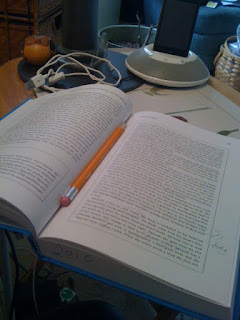 course shape • scholarship and • practice
course shape • scholarship and • practice 1. Strategy — what’s your big idea?
2. Story — help people understand it.
3. Tools — set up simple tools that make it easy for contributors to see what’s happening and get involved.
4. People — who are you trying to reach? how can they help right now?
5. Prototype — build fast. test and improve it together. (Shake and repeat.)
1. Strategy — what’s your big idea?
 Wednesday, February 9 – Media Ecologies
Wednesday, February 9 – Media Ecologies • read Ito, Hanging, intros and section 1 (xi-78) and look through Mitchell, Data, for contexts and politics, for example, Flanagan, Woodward, Hayles; and/or check out Pink Noises, book and website.
• teams and partners begin project visioning: Tara Rodgers will inspire us by visiting to discuss the history of her website Pink Noises, the book that came out of it, and her projects. The book is available as a Google ebook, and the website is: http://www.pinknoises.com/ You can also catch her on tumblr.
===
Scholarship: who are these people anyway? How can you find out? Spend some time online finding out everything you can about them, and bring in notes about it all to class to share and discuss. Check this out for example: Conversation with the Digital Youth Project • Look at this article from The Washington Post, and consider the assumptions behind it that Ito's book makes visible in its discussion of "genres of participation." What else do you notice?
• Let's discuss box 1.2 Michell (42-45), so look at that part closely and think about practices described and the frameworks the book uses.
• Remember that you can download the Ito book as a free PDF file (click "DOWNLOAD THIS BOOK" here), and get a condensed version of it for free on the Kindle.
• Why is this book available in these forms and at these costs? What is this all about? Who are the people and organizations involved? What sort of project is this? (For students in 300 too, how is this an "epistemological project"?)
• Look here for some thoughts on eBooks and how to improve the state of eBooks. What do you think? Did this change your thinking in any way? Why or why not?
• And this?
• Although the Mitchell book is recommended, you need to spend time finding out everything you can about it, at the library, online, by finding out everything you can about the authors named, and so on. (What else is left and covered by "so on"?) How do you do this?
From one online review:
"As the editors of Data Made Flesh note, while the discourses of cybernetics and communications have historically separated immaterial information from the materiality of bodies, recent developments in science (e.g. genomics), economics (patenting of biological materials), entertainment (video games) and aesthetics (transgenic art) have challenged this separation, in which “‘information’ and ‘bodies’ seem to function almost as ripples that pass from pools of liquid across one another” (p. 2). While a number of other cyberculture books tend to obsess over the future possibilities that digital technologies present, Data Made Flesh begins from the position that the practices are, in a sense, already ahead of the theory. The issue, then, is not to imagine new hybrid, cyborg forms, but rather to eschew the data-flesh dichotomy altogether, to think of embodiment as inseparable from the concerns of control. Thus, each of the chapters in Data Made Flesh focuses on 'those moments when information and flesh co-constitute one another' (p. 2). Contributions include essays on both historical and contemporary issues by Richard Doyle, Mary Flanagan, N. Katherine Hayles, Robin Held, Eduardo Kac, Elisabeth LeGuin, Timothy Lenoir, Mark Poster, Steve Tomasula, Anne Vila, Bernadette Wegestein, Kathleen Woodward and editors Robert Mitchell and Phillip Thurtle."
===
===
• "About this talk: Media and advertising companies still use the same old demographics to understand audiences, but they're becoming increasingly harder to track online, says media researcher Johanna Blakley. As social media outgrows traditional media, and women users outnumber men, Blakley explains what changes are in store for the future of media. • Johanna Blakley studies the impact of mass media and entertainment on our world."



No comments:
Post a Comment